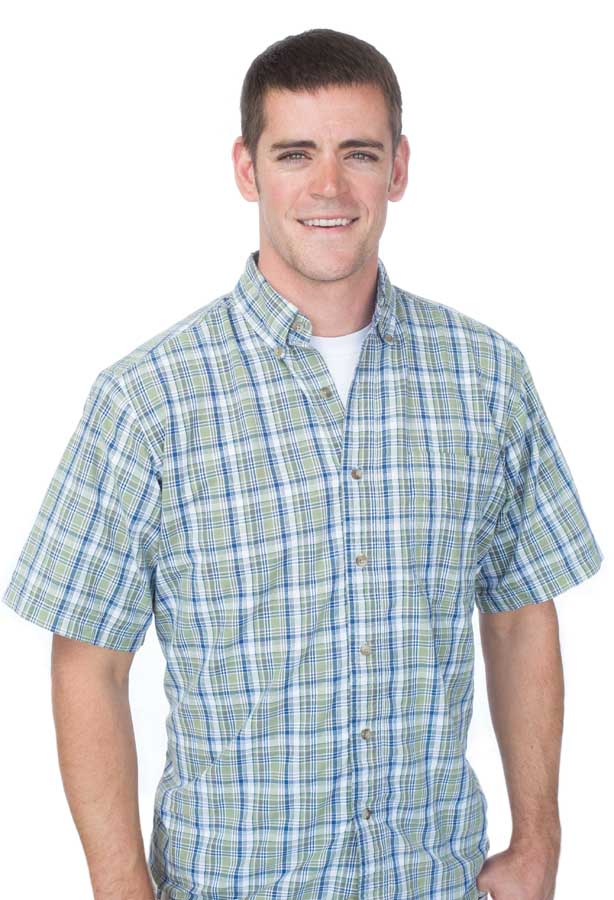 grower / George, Washington
grower / George, Washington
age / 26
crops / Apples, cherries, and wine grapes
business / Washington Fruit and Produce Company
family background / Nick grew up in Yakima and is the son of Rick Plath, nephew of Cliff and Pete, grandson of Fred M., and great-grandson of Fred B. Plath
What was your path to farming?
I’ve been working in and out of orchards and warehouses since I was about 14 years old. I went to college in Colorado and Washington State and took some ag classes, but mainly economics.
I’ve always preferred the outdoors and being out in the fields. I’ve always been excited about joining the family business.
The first few jobs I had were out in the Hanford area at one of our big farms, working for an older war-vet type manager.
I learned the value of having a good work ethic because he always had me on the difficult jobs. My first task was lifting up big Golden Delicious branches right before harvest so the tractors could drive through the blocks.
I learned the ins-and-outs of the work involved during that time.
What have you been learning recently?
One of the things I’ve been working on the past couple of years is chemical thinning. Doing it right sets you up for the whole year.
All it takes is one slip using too much or too little, and you’re going to live with the result the whole year.
The pressure for me is trying to time the spraying down to the hour. It’s a very precise technique. All of the flowers are opening at different times and there’s going to be some level of speculation in the decision making.
Just having the equipment and crew ready at the opportune moment is crucial. Produce doesn’t wait for anybody. If I don’t have all of the tractors ready for a particular two-hour window, then the opportunity is gone.
Do you have any other recent challenges?
Labor challenges come year to year. Fortunately, this year’s been great. Last year wasn’t the case. One of my first jobs out of college, I was thrown into figuring out the guest worker program.
As a company we held off on it as long as we could but it became a necessity, so we’ve been building housing each year. That was a hurdle of mine. I mean, I didn’t go to school studying construction management.
I wanted to be an apple farmer. But, when it comes down to it, I had to learn it because I was looking after a chunk of acreage with time-sensitive jobs. I’ve got to have the people at hand.
What’s your opinion of new varieties?
I’ve got a pretty young perspective on the Reds, and I see us cycling them out more and more. But honestly, Reds are a low-input, easy apple to grow.
Only a few years ago they were seen as a great variety. Since then we’ve transitioned to focus more effort on varieties like Gala, Fuji and Honeycrisp, things like that. I see Reds dwindling out, even though it’s a big cost to push and replant an orchard. We’re trying to be as strategic as we can with it.
As we move forward and cycle out some of our Reds and Goldens, I do see a demand for the club varieties. It’s a big gamble going that direction. Similarly, we’ve never been organic farmers, and now we are transitioning. Changes are coming.
What would you tell younger growers about your career choice?
Anyone wanting to learn about this industry should know that working in produce is demanding and it’s not for everybody. It took me a while to sort out my passion.
I would tell younger growers that I found my place after I better understood my personality. For some people, it might be working in sales – being personable and fun to be around.
For other guys, it’s going to be having your feet on the ground in the warehouse. I found it in growing.
I took a step back to think about the opportunity of taking an orchard from dormancy to fruit in a bin and really appreciating that we’re providing a pretty special product.






Leave A Comment